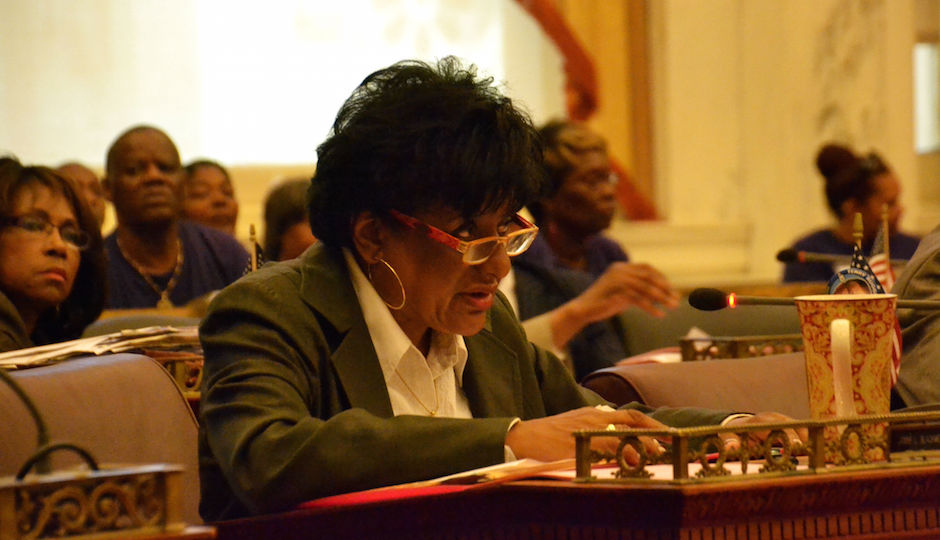Jannie Blackwell Wants To Roll Back Rules for Tax-Exempt Groups
Philadelphia City Councilwoman Jannie Blackwell introduced a bill Thursday that would overturn a new rule requiring local nonprofits to verify annually that they are legitimate charitable organizations in order to receive a break on their property taxes.
Under the law passed in 2013, tax-exempt nonprofits must certify by March 31st of each year that they are “purely public charities” and that they use their properties for charitable purposes. Blackwell’s legislation would erase those annual reporting requirements.
Blackwell says she’s received many calls from church leaders concerned about the new rules.
“Churches were getting ready to march on City Council today,” says Blackwell. “I said, ‘Please, please, don’t come. I’ll introduce a bill. And at the time of the public hearing, I’ll need you. Come then.’ So they were very, very upset. I’ve talked to almost every preacher in my district and in the city about this. They were threatening to file an injunction.”
She acknowledges that some backers of the new rules for nonprofits “may have legitimate ideas, and they’re serious about making sure that people who have nonprofits are legitimate.” Under her bill, she says, nonprofits would still be required to verify that are truly charities and use their real estate for non-profit purposes when they first apply for a tax break.
In past years, a handful of organizations had their tax-exempt status revoked by the IRS after initially being approved for a property tax break, but continued to get tax breaks anyway. In 2013, the city’s Office of Property Assessment also could not locate documentation from some nonprofits proving that they were eligible for a property tax exemption.
The legislation creating the new requirements, which was introduced in 2013 by then-City Councilman Bill Green, was debated as the school district was facing a budget crisis. It passed in June of that year. More than half of the city’s property tax revenues go to the district.
Mark McDonald, a spokesman for Mayor Michael Nutter, says this year nonprofits only need to provide the city with the IRS letter that confirms their tax-exempt status.
“They don’t need to send all the other documents,” he says.
This is the first year the law is being implemented, and McDonald says a process is not yet underway for the city to determine whether each tax-exempt property is being used for non-profit purposes. He says the city will get that process started in the future.
Councilman David Oh, meanwhile, introduced a separate bill Thursday that would keep the new rules in place, but extend the deadline for meeting the requirements this year to June 1st. He says the city only sent out notices to nonprofits about the rules in mid-February, and should have done so sooner.
“Right now, a lot of nonprofits are suddenly learning that there’s a new requirement and they’re unprepared to substantiate that they are in fact using their property in a non-profit manner,” says Oh. “Once you get into organizations that don’t speak English, they don’t even know what’s going on.”
McDonald says the city’s notification process gives “nonprofits a month and a half to return proof of their status.” He also says the city is planning to grant an automatic 30-day extension to any nonprofit that doesn’t meet the deadline.
Follow @HollyOtterbein on Twitter.



